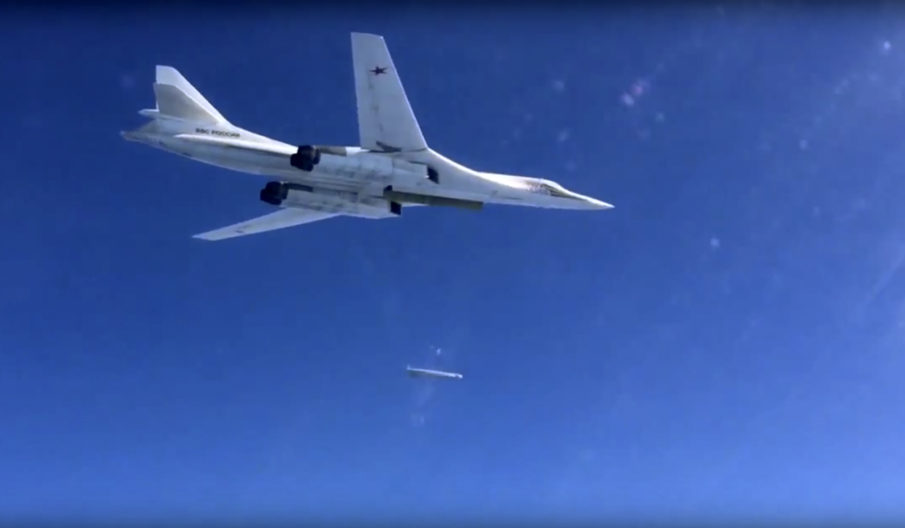One day after the U.S. State Department announced intentions to match Russian violations of the 1987 Intermediate-Range Nuclear Forces Treaty by developing cruise missile platforms to match Russian assets, the Russian Foreign Ministry accused the Americans of misrepresenting the facts of the situation.
State Department spokeswoman Heather Nauert announced on Friday that that United States would work to develop (potentially nuclear capable) cruise missiles for deployment on mobile launch pads and even aircraft, which could be construed as a violation of the Cold War era treaty between the United States and then Soviet Union. According to Nauert, this potential violation is appropriate, based on Russian violations of the same treaty that began in 2014.
The United States is “pursuing economic and military measures intended to induce the Russian Federation to return to compliance,” said Nauert, which include fielding comparably missile platforms to those the Russians already have in use.
“We are also prepared to cease such research and development activities if the Russian Federation returns to full and verifiable compliance with its INF Treaty obligations.”
The treaty bans the development and deployment of cruise missiles with ranges between 500-5,500 kms (310-3,417 miles). According to the State Department, Russia began fielding a ground-launched cruise missile that falls within that range three years ago.
Russian Deputy Foreign Minister Sergei Ryabkov, however, called those allegations “absolutely unfounded” in a statement released by their Foreign Ministry on Saturday.
They are not supported by the technical characteristics of the launch installation which allegedly does not comply with the treaty, or by flight telemetry data. Nothing. And it is understandable why – because it simply does not exist,” he said.
Ryabkov went on to claim that Russia has been strictly adhering to the restrictions set forth in the treaty, and that his nation was prepared to continue doing so, tempering that olive branch, however, with a warning that mirrored that of the U.S. State Department’s statement from earlier in the week.
However, if the other side stops following it, we will be forced, as President of the Russian Federation Vladimir Putin has already said, to respond in kind,” he added.
In 2014, the Obama administration attempted to persuade the Russian government to do away with the cruise missile in question while it was still under development, but were met with similar rebuffs from the Russian government. In 2016, the same administration even went so far as to call for the first convening of a special verification commission established under the treaty to deal with compliance issues in thirteen years to voice their concerns, but Russia refuted the allegations by lobbing accusations of their own – allegations the United States denied had any validity. Then, in February and March of this year, the U.S. Government, this time under the helm of newly appointed President Trump, again tried to pressure the Kremlin to adhere to the INF Treaty as they began deployment of the completed platform.
We believe that the Russians have deployed a land-based cruise missile that violates the spirit and intent of the Intermediate Nuclear Forces Treaty,” Gen. Paul Selva, the vice chairman of the Joint Chiefs of Staff, told the House Armed Services Committee in March. “The system itself presents a risk to most of our facilities in Europe,” he added. “And we believe that the Russians have deliberately deployed it in order to pose a threat to NATO and to facilities within the NATO area of responsibility.”
Already have an account? Sign In
Two ways to continue to read this article.
Subscribe
$1.99
every 4 weeks
- Unlimited access to all articles
- Support independent journalism
- Ad-free reading experience
Subscribe Now
Recurring Monthly. Cancel Anytime.










COMMENTS